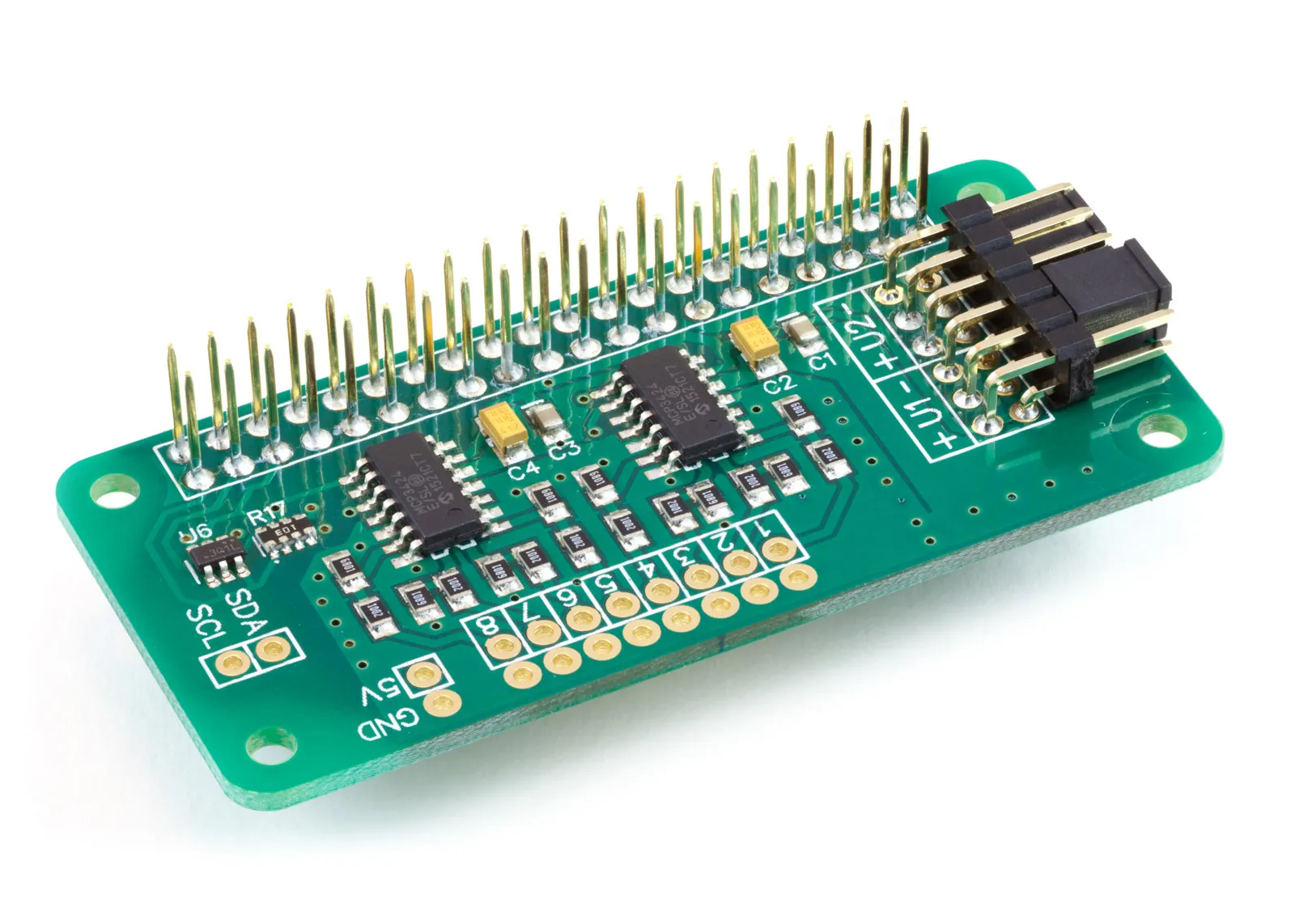Python Library to use with ADC Pi Raspberry Pi development board.
The example python files can be found in /ABElectronics_Python_Libraries/ADCPi/demos
Downloading and Installing the library
Python 3
To install the library you will need the Python3 build and install packages. To install them run the following command.
sudo apt update
sudo apt install python3-build python3-installer git
Download the ABElectronics_Python_Libraries to your Raspberry Pi:
git clone https://github.com/abelectronicsuk/ABElectronics_Python_Libraries.git
To install the python library navigate into the ABElectronics_Python_Libraries folder and run:
python3 -m build
sudo python3 -m installer dist/*.whl
Using classes without installing the library
To use a specific part of our Python library in your project without installing the entire library, you can simply copy the needed class file into your project's directory. For example, to use the ADC Pi, copy the ADCPi.py file from the ADCPi directory to where your project files are located. After doing this, you can use the class in your program by adding an import statement at the beginning of your Python code. This allows you to directly utilize the class's functionality in your project.
from ADCPi import ADCPi
Required Libraries
The library requires smbus2 or python-smbus to be installed
sudo pip3 install smbus2
Classes:
ADCPi(address, address2, bus)
Parameters:
address: I2C address for channels 1 to 4, 0x68 to 0x6F. Defaults to 0x68
address2: I2C address for channels 5 to 8, 0x68 to 0x6F. Defaults to 0x69
rate: bit rate, values can be 12, 14, 16 or 18. Defaults to 18
bus (optional): I2C bus number (integer). If no value is set the class will try to find the i2c bus automatically using the device name.
Functions:
read_voltage(channel)
Read the voltage from the selected channel
Parameters: channel - 1 to 8
Returns: number as a float between 0 and 5.0
read_raw(channel)
Read the raw int value from the selected channel
Parameters: channel - 1 to 8
Returns: number as an int
set_pga(gain)
Set the gain of the PGA on the chip
Parameters: gain - 1, 2, 4, 8
Returns: null
setBitRate(rate)
Set the sample bit rate of the ADC
Parameters: rate - 12, 14, 16, 18
Returns: null
12 = 12 bit (240SPS max)
14 = 14 bit (60SPS max)
16 = 16 bit (15SPS max)
18 = 18 bit (3.75SPS max)
set_conversion_mode(mode)
Set the conversion mode for the ADC
Parameters: mode - 0 = One-shot conversion, 1 = Continuous conversion
Returns: null
set_i2c_address1(address):
Set the I2C address for the ADC on channels 1 to 4
Parameters: address - 0x68 to 0x6F
Returns: null
set_i2c_address2(address):
Set the I2C address for the ADC on channels 5 to 8
Parameters: address - 0x68 to 0x6F
Returns: null
get_i2c_address1():
Gets the I2C address for the ADC on channels 1 to 4
Returns: I2C address
get_i2c_address2():
Gets the I2C address for the ADC on channels 5 to 8
Returns: I2C address
Usage
To use the ADC Pi library in your code you must first import the library:
from ADCPi import ADCPi
Next, you must initialise the ADCPi object:
adc = ADCPi(0x68, 0x69, 18)
The first two arguments are the I2C addresses of the ADC chips. The values shown are the default addresses of the ADC board.
The third argument is the sample bit rate you want to use on the ADC chips. The sample rate can be 12, 14, 16 or 18
You can now read the voltage from channel 1 with:
adc.read_voltage(1)

